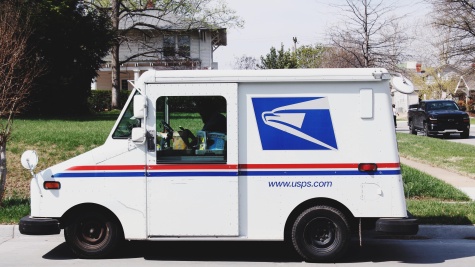Ballot Tracking Use in the United States
An In-Depth Look at Three States
The MIT Election Data and Science Lab helps highlight new research and interesting ideas in election science, including through research grants under our ongoing Learning from Elections program.
Our post today comes from Mindy Romero and Paul Gronke, based on their ongoing research funded by this program. The information and opinions expressed in this column represent their own research, and do not necessarily represent the opinions of the MIT Election Lab or MIT.
The Center for Inclusive Democracy (CID) at the University of Southern California (USC) and the Elections Information & Voting Center (EVIC) at Reed College are collaborating to explore ballot tracking use, local election official (LEO) communication related to ballot tracking options, the impact of ballot tracking on voters’ trust, and how ballot tracking impacts ballot rejection. Using a combination of quantitative and qualitative methods, this research seeks to inform efforts to combat misinformation about the integrity of voting by mail and aims to strengthen democracy in the United States.
During this research effort, we are collecting comprehensive information on voter usage rates of ballot tracking, conducting interviews with state and local officials, and tracking communications and education practices, in order to address these four research questions:
- What are the patterns of and reasons for adoption and non-adoption of ballot tracking?
- What is the effectiveness of LEO communication and education in encouraging widespread and equitable usage by voters?
- What is the impact of ballot tracking systems on voter information and trust?
- What is the occurrence of:
- mail ballot transmission and return?
- address updating?
- ballot rejections?
- ballot curing?
- other points of ballot leakage or “loss” in the “chain” of mail voting?
Our research evaluates mail balloting systems across all adopting states, including detailed ballot transaction and ballot curing information provided by the ballot tracking systems. Each of these questions are being examined for variation by demographic and geographic subgroup.
We are also conducting statewide opinion surveys in three states selected after analysis of multi-state ballot tracking data comparing views of election integrity and conduct between matched samples of voters who use and who do not use ballot tracking in the following three states: California, Colorado, and Georgia.
Our multi-pronged approach will include:
- In-depth quantitative assessment of ballot return system data, including race, ethnicity, age, party, vote history, and turnout status
- Analysis of additional steps required for vote by mail ballots compared to in-person voting
- Voter surveys of ballot tracking usage and views of the election integrity
- Local election jurisdiction surveys of outreach methods
- Comprehensive interviews of select election officials
- Content analysis of local election jurisdiction advertising, promotional materials, and voter guides containing information related to ballot tracking systems
The major methodological innovation of the proposed research is to use detailed transaction information captured by ballot tracking systems to examine as many of the “links” in the chain of by-mail voting, creating more precise estimates of when and where ballot leakage, loss, or rejection occurs, including:
- Leakage, loss, and rejection due to invalid addresses and which are not cured
- Rejection due to late arrivals, disaggregated into late mailing by voters and late arrival due to disparities in USPS delivery times
- Rejection due to failed signature verification and lack of curing, categorized into failed voter responses and insufficient time/outreach from elections officials
- Leakage and loss due to non-turnout (lack of return of ballot)
Currently, we are obtaining individual-level ballot tracking data from BallotTrax, a provider of ballot tracking solutions, for California, Colorado, and Georgia
Our survey project is contingent upon having sufficient information to draw a valid sample and administer a high quality survey, ideally using existing survey panels through YouGov and conducting surveys in our three target states. Ideally, these states will have relatively high levels of partisan competition and demographic diversity, since we know from prior work that partisanship has a strong impact on voter confidence levels and that use of ballot tracking varies by race and education levels.
We are currently researching methods to draw a sample and conduct a survey. We are constrained by the proportion of registered voters who use ballot tracking (pBT), turn out to vote (pTO), panel coverage in a state (pPANEL), and projected response rate (pRESPONSE).
SAMPLE ~ (pBT * pTO * pPANEL * pRESPONSE) * VOTERS
(A less attractive alternative would be to conduct a survey within a set of states and jurisdictions in which we already know there is high ballot tracking usage and use after the fact vote validation and use of ballot tracking to make comparisons.)
We are continuing our work with YouGov to draw a sample from their existing panel and match to a list of voters. We are additionally developing our survey instrument which will be deployed shortly. We look forward to sharing the results of our survey work on this effort with the elections community. If you are interested in learning more about this effort, please do not hesitate to reach out to us. Otherwise, stay tuned for more on this research over the summer!



